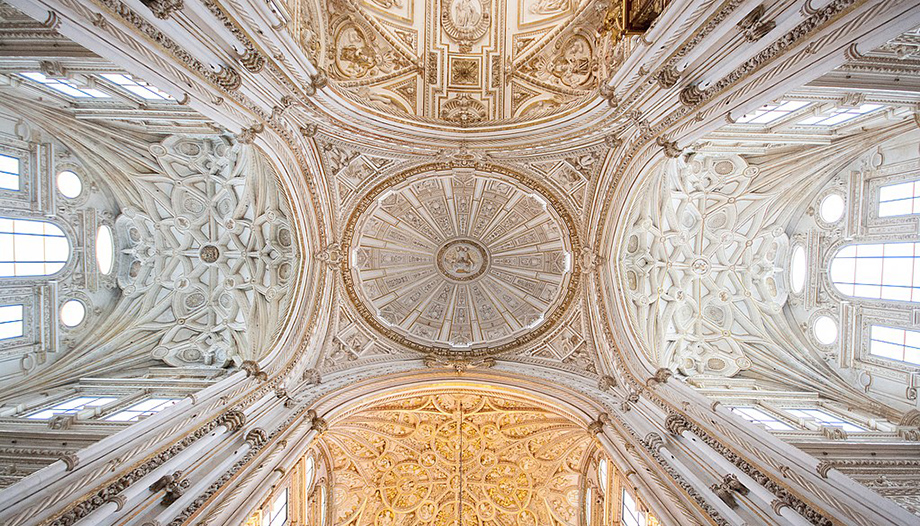The Report that the Government has just sent to the Congress about the immatriculation of ecclesiastical property in the Property Registry, brings cause of a Proposition not of law, presented in 2017 by the Socialist group in the Justice Commission, whose ultimate objective pursued to claim from the Catholic Church the ownership of those properties that had been registered in the Registry in its favor from the reform of the mortgage legislation of 1998.
According to the Government from that date until 2015, the Church immatriculated 34,915 real estate properties, of which about 20,000 would correspond to temples and places of worship, and the rest to other properties not directly related to a religious use: lots, premises, homes, etc.
Among the places of worship listed -whose ownership in favor of the Church is questioned- are some as significant as the Cathedral of Cordoba or the Giralda of Seville, whose property would belong -according to the registry entries- to the Diocese of Cordoba and the Chapter of the Cathedral of Seville, respectively.
The Government states in its Report that it will conduct administrative proceedings to elucidate the possible ownership of these assets in favor of the State, so that when it is proven, it will resort to judicial proceedings to obtain their recognition and consequent modification in the registry.
The 1998 change
In order to understand the shadow of doubt cast over the actions of the Catholic Church in this area, it should be borne in mind that until 1998 mortgage legislation did not allow the registration in the Property Registry of either public property (state, provincial, municipal) for public use or of temples intended for Catholic worship, since they were considered property for common use whose owner was taken for granted.
Thus, since they could not be registered, it was of little importance to have a title deed, nor, in the event that it was missing, was it appropriate to initiate an ownership proceeding to prove it. This regulation was clearly detrimental to the Church, since it could not enjoy the protection implied by the registration of its places of worship, contrary to what happened with other religious denominations whose properties could be registered.
To correct this discrimination, the 1998 reform allowed access to the Property Registry for both the aforementioned public properties and Catholic places of worship. When the properties in question lacked title deeds - for various reasons, including historical ones - the registration could be made by means of a certification issued by the competent official or the diocesan bishop regarding the ownership of the property.
This happened, for example, with the Mosque-Cathedral of Cordoba, which was registered in 2006 in the name of the Diocese because it had belonged since time immemorial to the Catholic Church and because it does not seem that anyone had a title deed in its favor. Obviously, in this case, the Administration could also have used this same procedure, but the reality is that only the Church made use of this prerogative recognized to both by the Mortgage Law.
Measures to avoid irregular immatriculations
It is true that this system - which ceased to be in force for the Church as of 2015 - could lend itself to certain abuses due to the broad autonomy of the diocesan bishop. However, in order to avoid irregularities, a series of safety valves were articulated. On the one hand, the registration did not produce effects against third parties until two years after it was made. On the other hand, there was always the possibility of going to court at any time to claim ownership of a property against the presumption provided by the registry. It is not known that the Government has disputed the ownership of the Cathedral of Cordoba or any other before the state courts.
It is clear to no one that this Report, which has a clearly identifiable political and ideological component, can uncover irregularities in the process of immatriculation of some places of worship in favor of the Church, but it will not achieve the desired effect: that the ownership of the great cathedrals in Spain passes into the hands of the State. For this, the courts would have to accept that the State has a better right over the Mosque-Cathedral of Cordoba -to give an example- than the Church, which is highly improbable, if one takes into account that for this the Government would have to prove in a reliable way -in the absence of title deeds- that the Mosque is theirs by demonstrating the origin of its acquisition or its ownership by usucapion, that is, by a public and peaceful possession as owner for a considerable period of time. Neither of these options seems easy to achieve. Caesaris, Caesari, Dei Deo.
Professor of Law. Complutense University of Madrid








